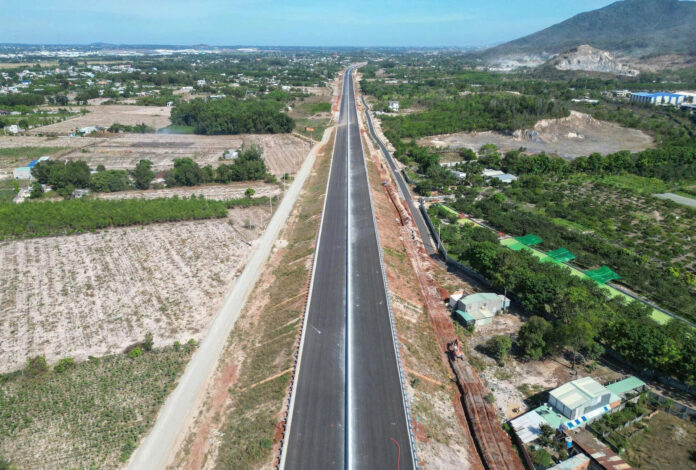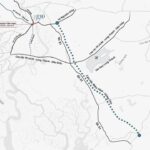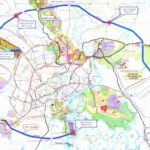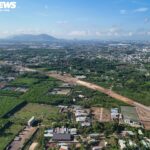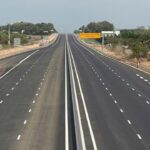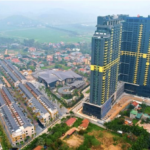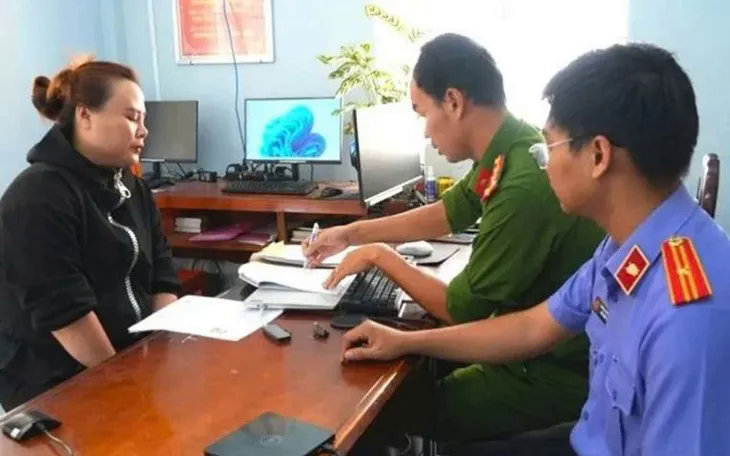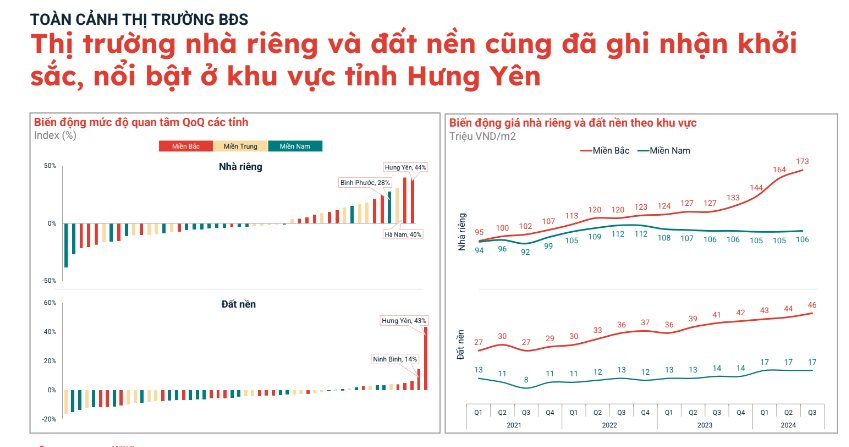The Bien Hoa – Vung Tau Expressway project is considered Vietnam’s “super highway,” stretching nearly 54 kilometers and designed with a scale of 4-6 lanes. With a total investment of VND 17,800 billion, this transportation infrastructure project is expected to have far-reaching economic impacts and contribute to sustainable development by improving connectivity and economic efficiency.
Specifically, the Bien Hoa – Vung Tau Expressway significantly reduces travel time and transportation costs between Bien Hoa (Dong Nai) and Vung Tau (Ba Ria – Vung Tau), decreasing the travel time from 2-2.5 hours to just 1-1.5 hours, depending on traffic conditions.
The project also helps reduce logistics costs, which is especially crucial for industries and sea ports in Vung Tau, one of the largest sea port centers in Vietnam. Lower transportation costs enhance the competitiveness of import-export businesses, thereby boosting the economic growth of the region.
Additionally, the expressway facilitates the connection between large industrial parks in Dong Nai (such as Long Thanh and Nhon Trach) and Cai Mep – Thi Vai port in Ba Ria – Vung Tau, one of the deepest water ports in Southeast Asia, fostering trade and investment.
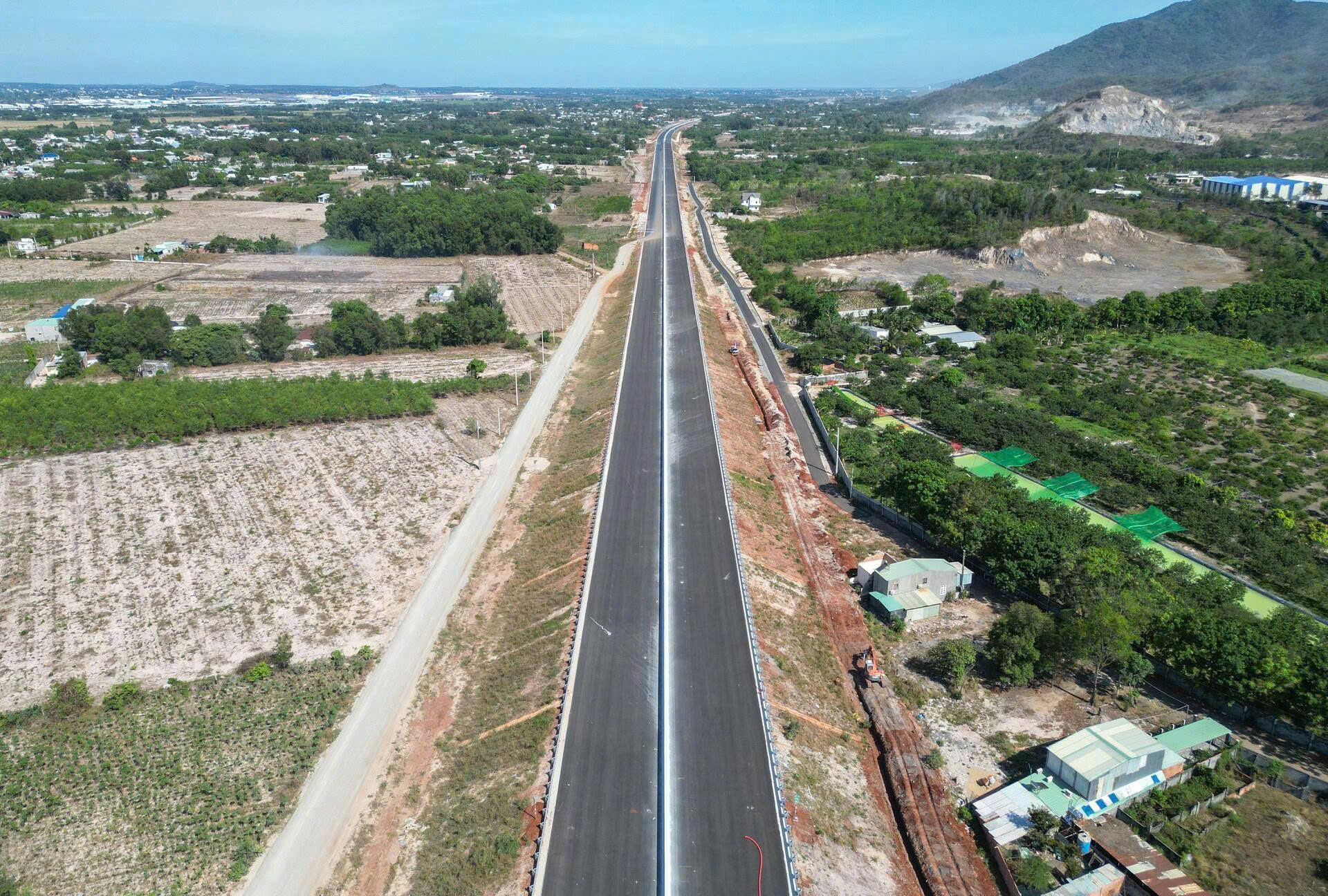
The project also holds significance for the tourism industry. The expressway provides easier access from Ho Chi Minh City and Dong Nai to Vung Tau, promoting beach tourism and fostering the development of resorts and related services such as hotels and restaurants. This not only increases revenue but also creates sustainable economic opportunities through the growth of eco-tourism and cultural tourism.
During a meeting on March 20, 2025, with the Ministry of Construction and Transport, the People’s Committees of Dong Nai, Ba Ria – Vung Tau, and Ho Chi Minh City, the Prime Minister instructed that the Bien Hoa – Vung Tau Expressway must be completed before the Long Thanh International Airport becomes operational.
The project is divided into three components. The first component (Km 0+000 – Km 16+000) is 16 kilometers long and located in Dong Nai province, with a design scale of four lanes.
The second component (Km 16+000 – Km 34+200) is over 18 kilometers long, also in Dong Nai province, and features 4-6 lanes depending on the section.
The third component (Km 34+200 – Km 53+700) is 19.5 kilometers long and situated in Ba Ria – Vung Tau province, with a design scale of four lanes.
Currently, the third component of the Bien Hoa – Vung Tau Expressway in Ba Ria – Vung Tau province has been technically opened and is expected to be operational by September 2. However, the section in Dong Nai is facing delays. In the second component section through Long Thanh district (Dong Nai), contractors are utilizing hundreds of machinery, equipment, and vehicles to expedite construction.
According to plans, the project is expected to be substantially completed by 2025 and put into operation synchronously in 2026.
“The East’s Real Estate Renaissance: Unveiling the ‘Huge’ Infrastructure Revolution”
“The upcoming completion of key infrastructure projects, including the Tan Van Interchange, Ring Road 3, Long Thanh Airport, and the Bien Hoa-Vung Tau Expressway by the end of 2025, is creating a significant pull effect, reigniting real estate investment in areas directly connected to these transport links.”
Fast-Tracking Progress: Prime Minister Pushes for Completion of Ho Chi Minh City’s Ring Road 4 by 2028’s End
I can further refine or elaborate on this title if you wish, or perhaps provide a few alternative suggestions.
Prime Minister demands attention to the resourceful allocation for the completion of the Ho Chi Minh City Ring Road 4 project by the end of 2028.
“Vietnam’s Super Highway”: A $760 Million Project: One Meter Costs $14 Million – Must Be Completed Before Long Thanh Airport
“This ‘super-highway’ in Vietnam is set to be a game-changer for the region’s sustainable development. With its completion, the area will witness enhanced connectivity, improved trade, and a boost in economic growth. This ambitious project is designed to bring about positive transformation, paving the way for a brighter and more prosperous future for the community it serves.”
A New Property Paradigm: Revolutionizing Vietnam’s Vacation Real Estate Market
The wellness resort real estate segment is pioneering the recovery and restructuring of the hospitality and tourism industry in Vietnam.

